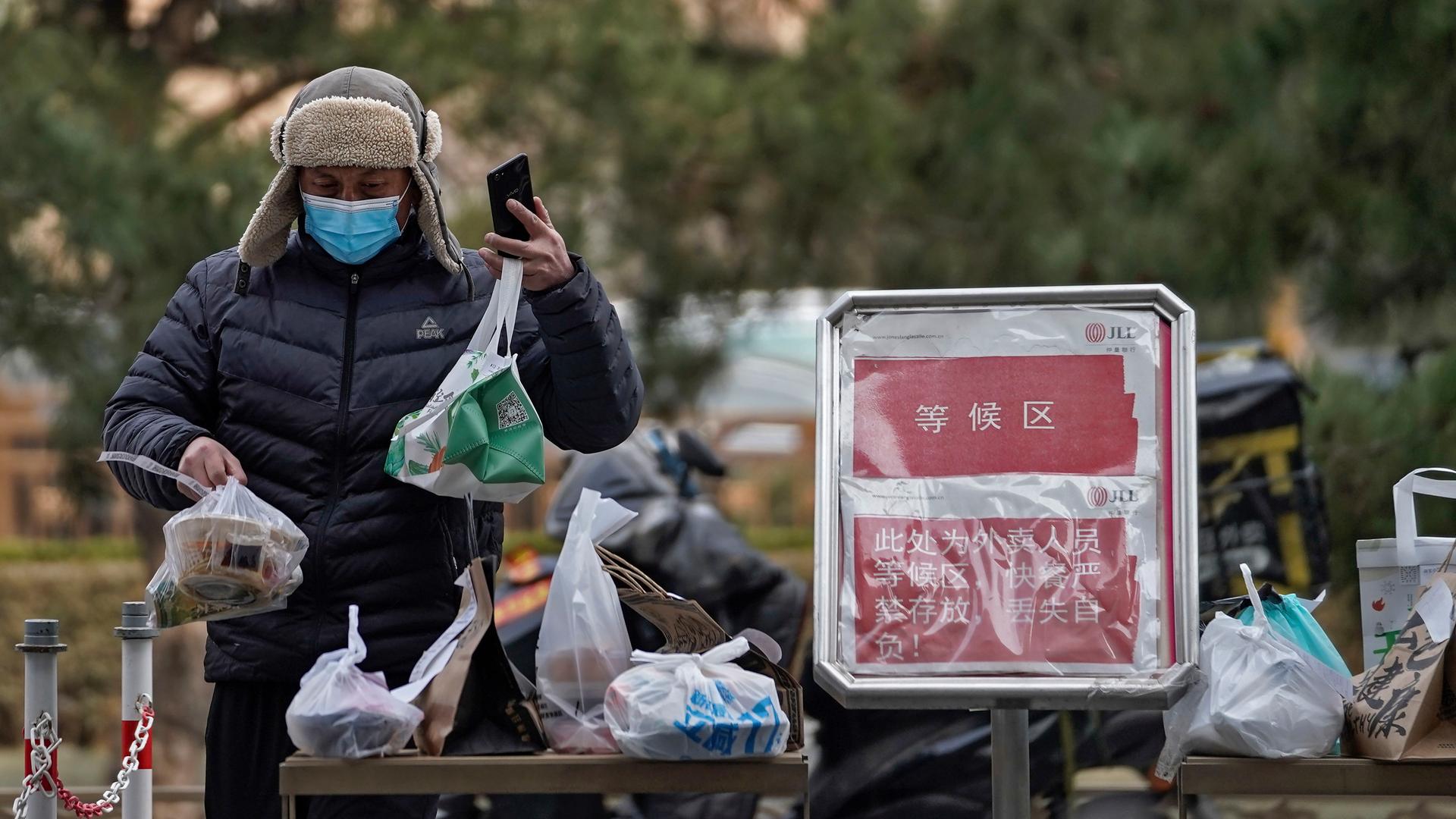Countries across the globe are scrambling to vaccinate everyone. With 1.4 billion people, that’s a huge challenge for China. Their goal is to inoculate about 70% of its population — which still hits the billion-dose range.
China is rolling out two of its own vaccines — Sinopharm and Sinovac — but it hasn’t been able to conduct trials on its own population because the coronavirus infection rates are so low.
Related: Dual citizens in Mexico seek vaccine options in the US as rollout lags
With the pandemic mostly behind them now, along with a lack of data around the efficacy of Chinese vaccines, many citizens are taking the “wait-and-see” approach to getting vaccinated.
Laura Liang, who was planning a work trip to Germany, got the Sinopharm vaccine last month. The Shanghai city government was offering COVID-19 vaccinations to people going abroad for work or study, and she jumped at the chance.
“It was very strict,” she said. “I had to show my plane ticket and prove I was going for work, not for travel or visiting family.”
Liang belongs to one of the groups Shanghai is prioritizing in this round of vaccinations. Other groups include front-line medical workers, transportation and shipping workers, teachers and people working in food industries — including vendors at wet markets.
“I was told if I wanted to keep my job I’d have to get the shots. … It’s because we come into contact with a lot of people every day. But I’d have preferred not to. The vaccine came out so fast, I worry it’s not effective.”
Huang Cui Xia, a butcher from Anhui province, says everyone at the market was offered the Sinopharm vaccine.
“I was told if I wanted to keep my job I’d have to get the shots,” she said. “It’s because we come into contact with a lot of people every day. But I’d have preferred not to. The vaccine came out so fast, I worry it’s not effective enough.”
Related: British celebs, religious leaders fight vaccine hesitancy in minorities
She’s not the only one who’s wary. And, as Liang says, a lot of people aren’t sure they even need the vaccine.
“Most of my friends aren’t interested now because they feel it is quite safe here. …And also, they’re worried about the possible side effects.”
“Most of my friends aren’t interested now because they feel it is quite safe here,” she said. “And also, they’re worried about the possible side effects.”
It’s not yet mandatory in China to get vaccinated, so a lot of people are choosing not to do it.
Cathy Jiang works for a state-owned business in Shanghai. She says the company arranged a group vaccination for employees, but she passed it up.
“Right now, the shots are only effective for six months. … That’s a bit too short for me. I don’t need to go to any high-risk areas for the next half year so I don’t think it is necessary for me.”
“Right now, the shots are only effective for six months,” she said. “That’s a bit too short for me. I don’t need to go to any high-risk areas for the next half-year, so I don’t think it is necessary for me.”
Related: How India’s Serum Institute became a COVID-19 vaccine powerhouse
The lack of firm data on the effectiveness of Chinese-made vaccines is holding some people back from participating, according to Winnie Yip, the director of Harvard University’s China Health Partnership. When she asked her colleagues in China how many had gotten the vaccine, it wasn’t many.
“The majority said they’d been offered but they’ll wait … they’ll wait and see,” she said.
Yip says that compared to some countries, China’s vaccine rollout has been less urgent. That’s partly the result of how effective China’s been at halting the spread of COVID-19.
“The fact that China was able to control allows them to have a slower schedule on the vaccine,” she said.
Ironically, China’s successful control of the pandemic could backfire now. Yanzhong Huang, a senior fellow at the Council on Foreign Relations, said that if people aren’t worried about getting COVID-19, they won’t want to get vaccinated.
“When you don’t have strong incentive to roll out a large vaccination campaign, that is going to undermine the effectiveness of the Chinese approach to pandemic control.”
“When you don’t have strong incentive to roll out a large vaccination campaign, that is going to undermine the effectiveness of the Chinese approach to pandemic control.”
Related: WHO team rules out lab leak as origin of the coronavirus
Yip said China’s commitments to helping other countries has also complicated its vaccine rollout at home. China has promised vaccines to 53 developing nations and struck export deals with 22 others.
“China wants to be sure that there is enough for its own country so that gradually the country will get immunity, but at the same time, I think that China wants to grow to a role that will contribute to global health, as well,” she said.
China may not have enough capacity yet to do both. That also may be playing into the slower rollout of vaccines here, Yanzhong said: “If you don’t have enough doses to administer that many people then you don’t have a strong incentive to encourage people to get the vaccine or make the vaccine mandatory.”
Related: Wuhan volunteers say the pandemic transformed their lives
For now, large portions of the population have been left out of vaccine efforts, including the elderly, and people with certain health conditions, like high blood pressure. China still needs more data to conclude that its vaccines are safe for them.
